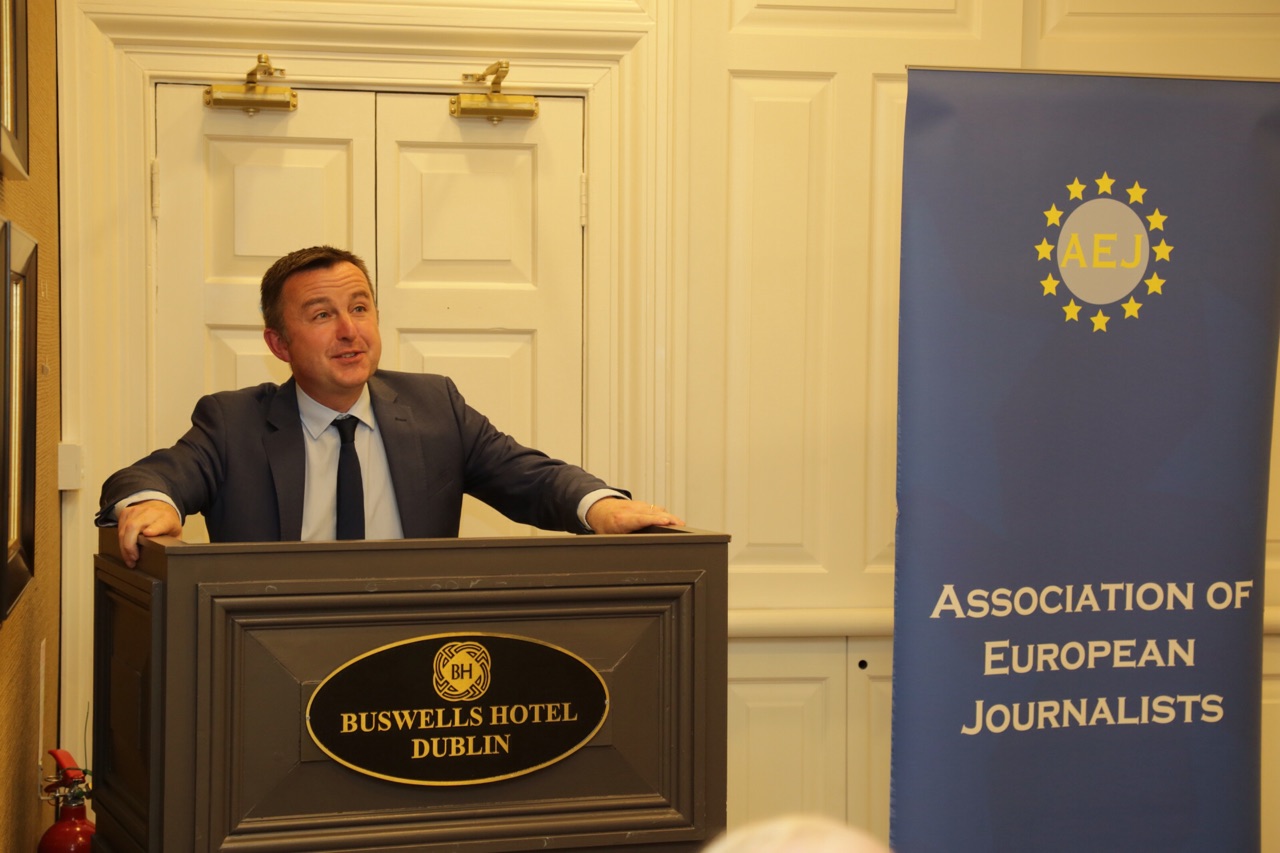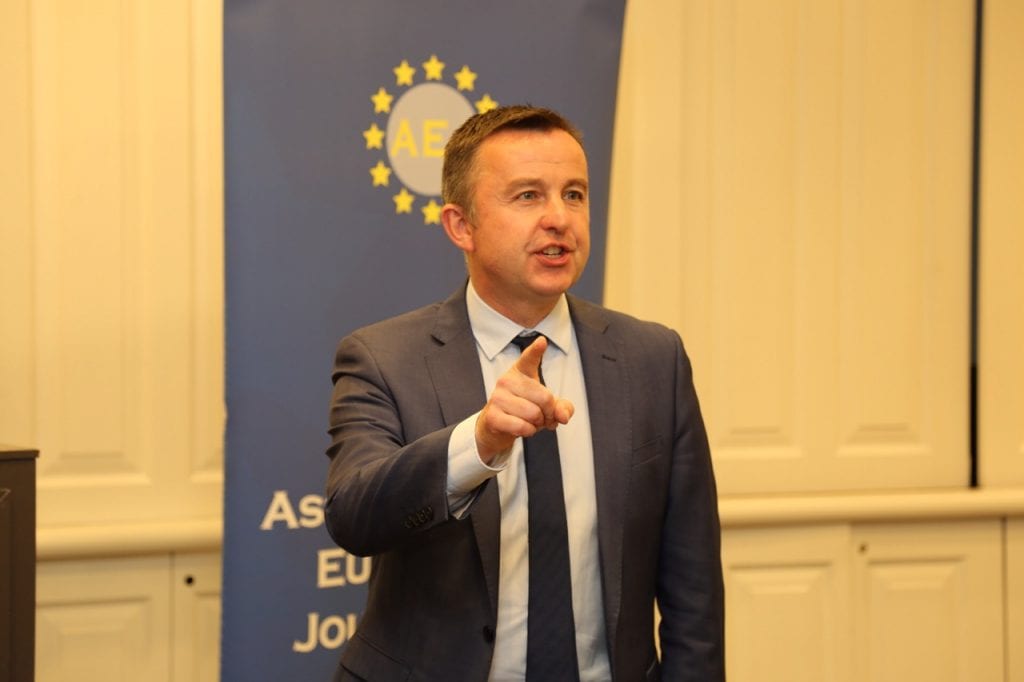
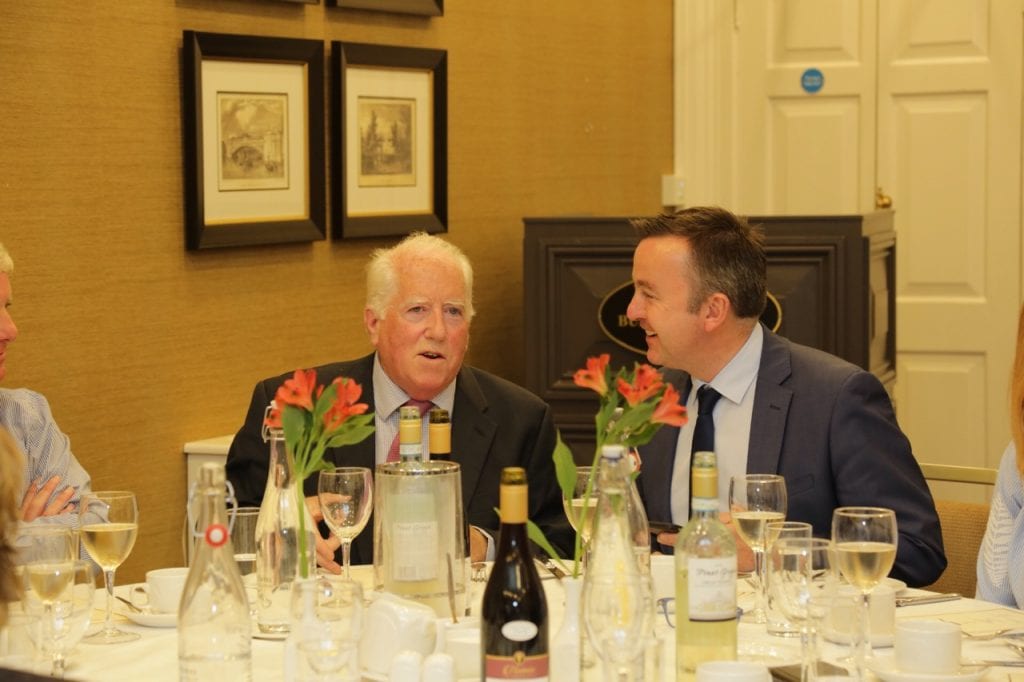
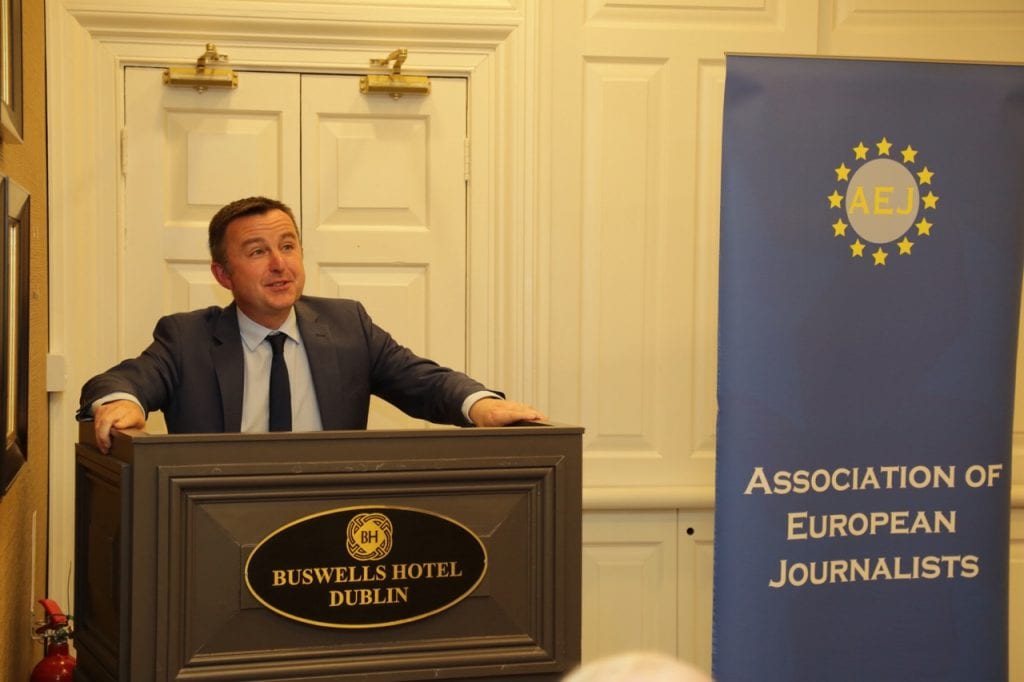
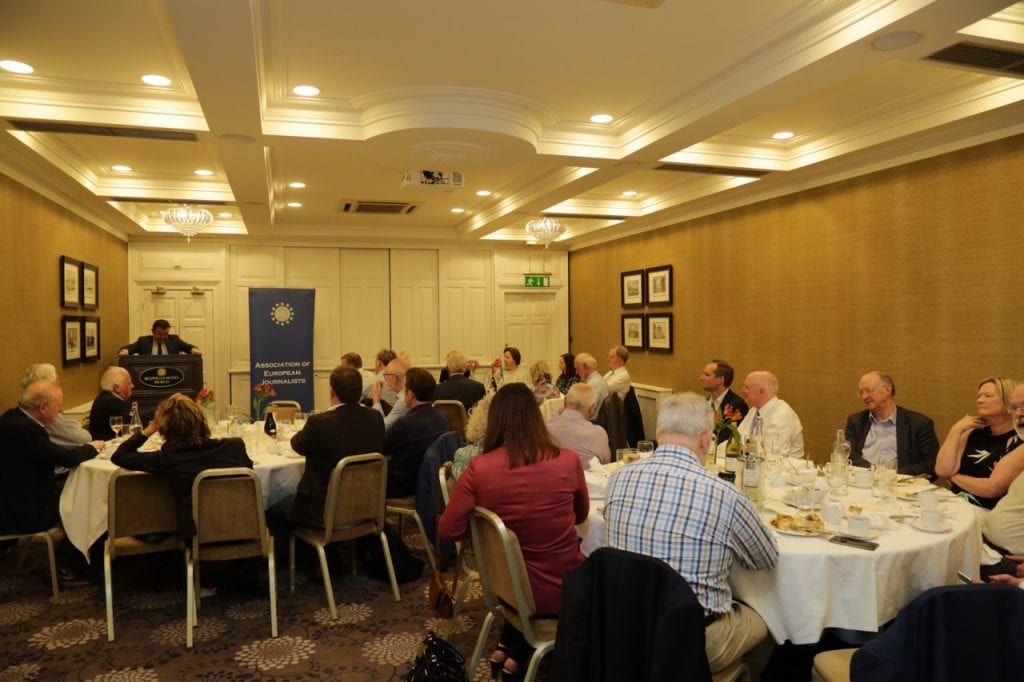
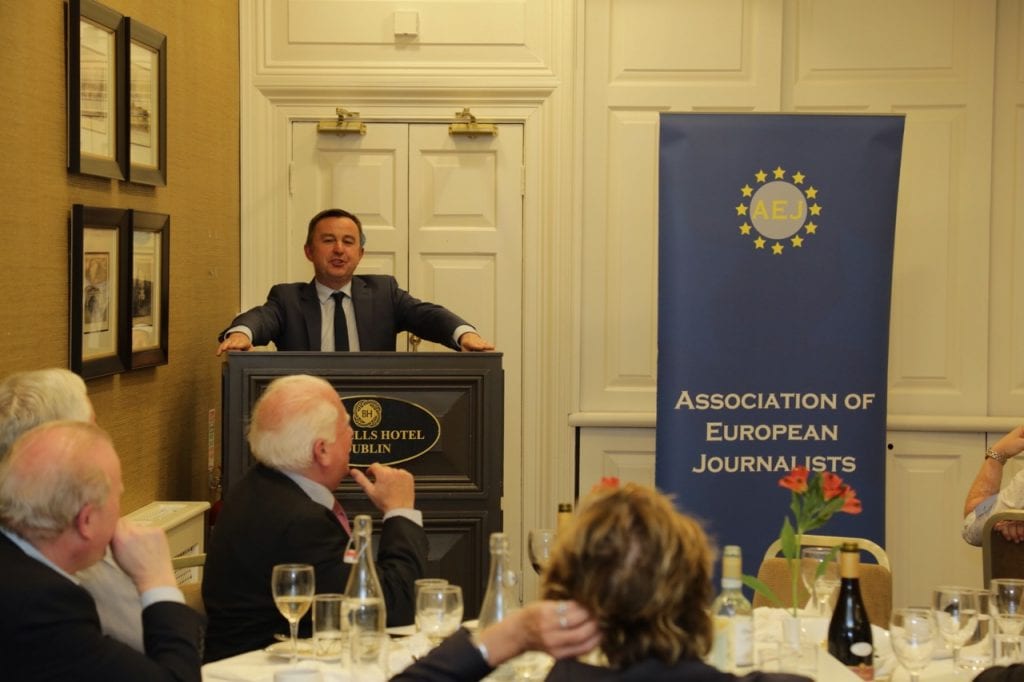
Brian Hayes, CEO, Banking & Payments Federation Ireland today (Friday July 12) addressed the lunch of the Association of European Journalists at Buswell’s Hotel, Dublin. In his speech, extracts of which are included below, he addressed the issue of trust and reputation and reaffirmed the banking industry’s commitment to rebuilding trust in the sector and embedding a customer-focused culture.
“Big controversial decisions leave a legacy that can define politicians and indeed can define industries. Reputations lost can be very hard or sometimes impossible to regain. In going to work for and in the banking industry I’m well aware of its standing in Ireland and well aware of the legacy issues that remain…
“Repairing reputation requires not just words or speeches, but tangible actions in the here and now. Real actions that deliver change and are clear to customers that change is underway.
“Some say we should simply write off the banks. That we start out again. But what do we put in their place? If we didn’t have banks, effecting the lives of so many people on a day-to-day basis from payments to the financing of the real economy; what alternative do we replace them with?
“I believe the industry is worth fighting for. I believe that the 30,000 people who work in Irish banking, which represents about 40% of the entire financial services jobs count in Ireland, have a right to work in an industry that is respected. People who work in banking in Ireland – 50% of whom were not in the banks 10 years ago – have a legitimate expectation that their job and their work is recognised as being important to Ireland and her economy.
“Reputation for me is determined by two fundamental measurements. One is capability, the other is character.
“On capability the question is really do you trust a bank for instance to do a job? Have they capability? If you deposit money will you get it back? Do you trust a bank with data or is that bank good at detecting fraud online or through traditional accounts?
“Do you know or trust your local branch? Banks have meaningful engagement everyday across this country through a network of branches. Online banking is regarded as one of the most significant recent inventions. The efficient use of capital is fundamental to the reason why a bank exists. I believe that most people when pressed or maybe begrudgingly, broadly accept that banks have certain capabilities.
“On the character measurements – that’s where the banks really fall down. The lending decisions taken before the crash and the subsequent tracker mortgage scandal – point to a lack of character and without character there cannot be reputation.
“Character is that intangible ingredient. It makes up a person’s mind. It defines what a person might do – do they make the right decision, or do they make the wrong decision? Do they confront bad behaviour or simply ignore it? – putting risk or indeed profit ahead of their customers. Customers; who they have a long-term relationship with. If there is a perceived lack of character – it’s difficult to get past first base.
“Whatever banks do – they cannot hide away. Banks need to explain their side of the argument and they cannot leave the stage empty. The new regulatory, liquidity tests and de risking environment that operate in is a million miles away from what happened in the past. The last eight years has all been about building out banking union across the EU. Effectively building it from scratch. From new EU stress tests to the provisioning of extraordinary amounts of capital that are required today – European banking has gone through seismic change.
“Banks are too important to the real economy and too important to the investment phase of Ireland’s economic come back. And it is the investment phase that is so important now. From the top of the crisis till now we are about 20% below where we should be on investment. Sustainable growth is predicated on investment and while non-bank lending is growing – bank lending will continue to be the mainstay for households and businesses into the future.
“The issue of the loss of banking reputation is replicated across the world. It’s not of course unique to Ireland. But we owe it to the people of Ireland especially, after everything that’s happened, to deliver on commitments made. To fix the problems that exist within Irish banking. To repay the taxpayer in full. To transform the customer experience. To speak out on public policy where banks have expertise and knowledge. To encourage banking as a profession to the next generation as an important core task in a modern diverse and internalized economy.
“I hope we can make progress. I know there is a firm industry commitment, at the highest level, to build on important foundations that exist. But actions and cultural change will determine the future of banking in Ireland. We all have responsibility to deliver that.”

